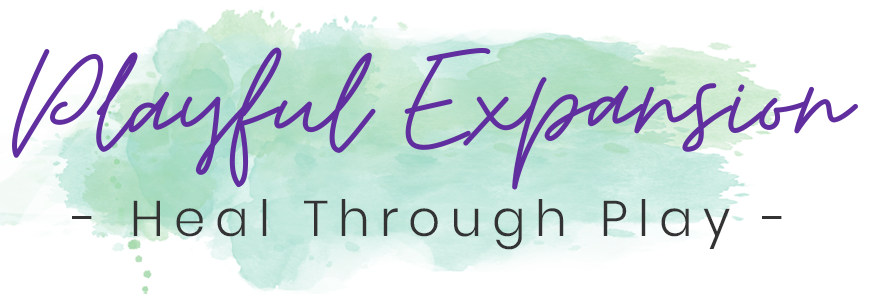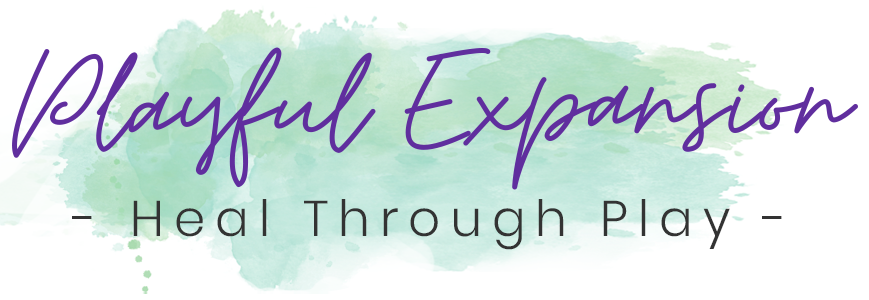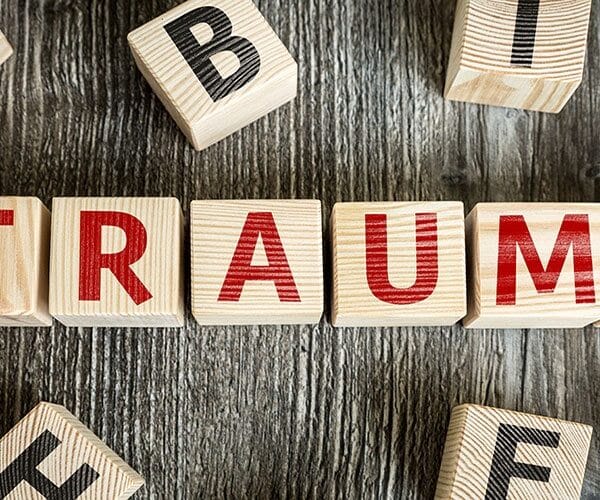- What is It?
- How Does it Get Stuck on Our Bodies?
- What Can We Do About It?
Click here for Blog 2 and here for Blog 3

In these next three blog posts, I will share my understanding of trauma, its impact on the body, and ways we can release it. I’m not a therapist by any means but I’ve done my fair share of personal research and healing (with professionals of all styles) so my intention is that these insights:
- Shed light on what trauma is
- Highlight the profound ways trauma can affect us
- Help release ourselves from it’s grip
Trauma is a term that we hear a LOT of these days.
It’s often used to describe a deeply distressing or disturbing experience, but what does it truly mean? And why do some experiences seem to get stuck in our bodies, impacting us long after the event has passed? Finally, when that happens, how do we help our bodies to release the stuck energy to allow for healing?
In this particular blog, we’ll explore what trauma is, the different events that may cause it, and why it’s helpful to recognize when we have been affected by trauma.
Once we understand the basics of what we’re dealing with, I’ll share (in upcoming posts) how and why trauma can show up in our bodies and impact out lives, and finally what we can DO about releasing and healing from it so that we don’t stay stuck.

What is Trauma?
Big ’T’ versus Small ’T’ Trauma
Trauma is defined as “the emotional response to a distressing event or series of events”. That’s a pretty broad spectrum that can encompass a lot so that’s why psychological trauma is often broken down into the categories of big ’T’ and little ’T’, however, it’s important to acknowledge that both can significantly impact our mental and emotional well-being.
Big ’T’ Trauma is refers to the more widely recognized and extreme events that can cause severe psychological distress. A few examples of big ‘T’ trauma include:
- Physical or Sexual Abuse or Assault: Experiencing physical or sexual abuse can leave deep emotional scars and cause a person to feel unsafe in their own body. It often leads to feelings of shame, guilt, and powerlessness. These traumas can result in long-term effects, such as hypervigilance, dissociation, and difficulty forming healthy relationships.
- Natural Disasters: Surviving events like earthquakes, floods, or hurricanes can result in intense fear, helplessness, and loss of security. Natural disasters often cause survivors to feel that their world is unpredictable or dangerous, leaving them vulnerable to anxiety and post-traumatic stress disorder (PTSD).
- Combat or War: Veterans of war or combat often experience trauma due to prolonged exposure to life-threatening situations. They may develop PTSD, experience flashbacks, or have difficulty reintegrating into civilian life. Combat trauma can also lead to survivor’s guilt or feelings of detachment from others.
- Serious Accidents: Surviving a car crash, workplace injury, or other life-threatening accident can leave someone not only physically hurt but emotionally traumatized as well. It can result in lingering anxiety, avoidance of similar situations, and an overwhelming fear of vulnerability.
- Kidnapping or Hostage Situations: Being held against one’s will, whether through kidnapping or a hostage situation, can evoke extreme fear and helplessness. This type of trauma may lead to difficulty trusting others, heightened anxiety, and severe emotional distress, even long after the event has ended.
- Severe Medical Events: A life-threatening illness, invasive surgery, or traumatic childbirth can be deeply distressing. In addition to physical pain, survivors of severe medical events may experience trauma around their vulnerability, fear of death, and long recovery, sometimes leading to medical PTSD or fear of future healthcare interactions.
- Sudden Loss of a Loved One: The unexpected death of a close family member or friend can cause overwhelming grief and emotional shock. This type of trauma often disrupts one’s sense of stability and can trigger prolonged mourning, depression, or feelings of guilt for being unable to prevent the loss.
These events are typically life-threatening, with an impact so profound that it can reshape our entire worldview. The effects of big ‘T’ trauma can be deep, influencing not only mental health but also relationships, daily functioning, and overall quality of life. Big ‘T’ traumas often result in intense emotional reactions and can lead to conditions like Post-Traumatic Stress Disorder (PTSD).

Small ’T’ trauma, on the other hand, is more subtle and can encompass frequently overlooked stressors that can accumulate over time, gradually eroding our sense of safety and well-being. Some examples are:
- Chronic Emotional Neglect: When a person’s emotional needs are consistently unmet, it can lead to feelings of worthlessness and deep-seated emotional pain. Chronic emotional neglect often manifests as a sense of invisibility or unworthiness, resulting in difficulties in forming connections and trusting others. Over time, this neglect can contribute to anxiety, depression, and a pervasive feeling of being disconnected from oneself and others.
- Microaggressions: These subtle, often unintentional comments or actions can convey dismissive or derogatory messages about a person’s identity or experiences. Although they may seem minor, repeated microaggressions can accumulate, leading to feelings of invalidation and chronic stress. The emotional toll can result in anxiety, lowered self-esteem, and a heightened sense of vigilance in social situations.
- Unhealthy Relationship Dynamics: Relationships characterized by manipulation, codependency, or chronic conflict can create an environment of emotional instability. This unhealthy dynamic can lead to feelings of inadequacy and fear of abandonment, making it challenging to establish healthy boundaries. Over time, individuals may internalize these experiences, leading to anxiety, depression, or a pattern of seeking out similar unhealthy relationships.
- Bullying or Teasing: Experiencing bullying or teasing, whether in childhood or adulthood, can significantly impact self-esteem and emotional well-being. The ongoing ridicule or harassment can lead to feelings of isolation and anxiety, often resulting in long-lasting effects, such as social withdrawal, trust issues, or even internalized self-criticism.
- Parental Pressure: Excessive expectations from parents regarding academic performance, career choices, or personal achievements can create significant stress. This pressure can lead to feelings of inadequacy, fear of failure, and a constant need for approval. Over time, individuals may struggle with anxiety, burnout, or a deep-seated fear of disappointing others.
- People-pleasing: People pleasers often struggle with setting boundaries, fearing that asserting their own needs will result in rejection or conflict. This constant need for external validation can cause a diminished sense of identity and self-worth and can lead to feelings of anxiety, loneliness, and isolation. The relentless pursuit of approval can also create an emotional disconnect, as individuals may suppress their authentic selves in favour of being what others expect or desire.
- Feeling Overwhelmed by Responsibilities: Juggling multiple responsibilities—whether related to work, family, or personal commitments—can lead to chronic stress and feelings of being overwhelmed. This constant state of pressure can result in burnout, anxiety, and a sense of being trapped in one’s circumstances. Individuals may struggle with self-care, leading to emotional exhaustion and feelings of inadequacy.
While small ‘T’ traumas might not be as immediately severe as big ‘T’ traumas, they can still have a profound and lasting impact on our mental and, as we’ll see in future posts, our physical health. Over time, these experiences can contribute to conditions such as anxiety, depression, or complex trauma.
It’s important to note that the impact of each of these experiences can vary from person to person, and what may be a small ‘T’ trauma for one person may not be for another. Recognizing and addressing these smaller stressors is crucial for promoting mental and emotional well-being over time.

If you have experienced trauma, don’t despair! Recognizing it is the first step toward healing.
I highly encourage anyone who thinks they have unresolved trauma, especially at the big “T” level or if it feels too much to take care of on your own, to please seek support from professionals trained specifically in trauma-informed care.
There are many support systems that can help facilitate your journey toward healing, recovery, and resilience. Please see a few options below.
Trauma Informed Care Resources:
Somatic Experiencing International: https://directory.traumahealing.org/
International Society for Traumatic Stress Studies: https://istss.org/portal/find-a-clinician/
EMDR International Association: https://www.emdria.org/
Claire Lindsay
Claire is a certified EFT master practitioner (tapping), a professional actor, adventure seeker, and an entrepreneur. She has been passionately following her own path of spiritual growth and healing since 2010. Claire founded Playful Expansion to encourage participants to break limiting beliefs and step into their own authenticity and power in a safe and fun environment.




